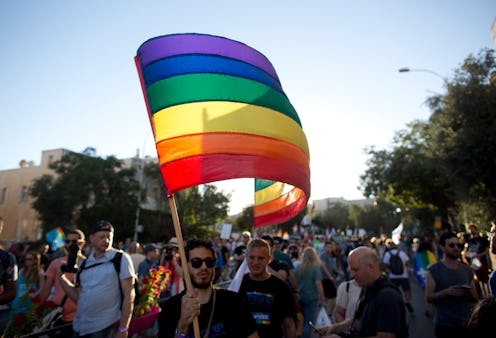
On Saturday, the state legislature in Washington passed a bill banning gay conversion therapy for minors. The bill will now be passed to Democratic Gov. Jay Inslee for his signature. If the governor signs the bill as expected, the highly controversial therapy will be outlawed statewide.
The bill, known as Senate Bill 5722, bans licensed therapists from performing "conversion therapy" on individuals under 18 years of age. The document defines conversion therapy as follows:
"Conversion therapy" means a regime that seeks to change an individual's sexual orientation or gender identity. The term includes efforts to change behaviors or gender expressions, or to eliminate or reduce sexual or romantic attractions or feelings toward individuals of the same sex. The term includes, but is not limited to, practices commonly referred to as "reparative therapy."
The bill further notes that "performing conversion therapy on a patient under age eighteen" now constitutes "unprofessional conduct" for any licensed medical professional. In explaining the rationale behind the creation of the bill, the text indicated that "Washington has a compelling interest in protecting the physical and psychological well-being of minors, including lesbian, gay, bisexual, and transgender youth." It further added that the state also has a vested interest in "protecting its minors against exposure to serious harms caused by conversion therapy."
According to HuffPost, the Senate bill mandates that licensed providers who do attempt to perform conversion therapy on minors face serious consequences, including fines, license revocation, or suspension. The bill passed the Washington state senate with 33 votes in favor and 16 against.
As reported by the Human Rights Campaign (HRC), multiple medical organizations support the notion that conversion therapy is both ineffective and harmful. For example, the American Academy of Child and Adolescent Psychiatry (AACP)'s policy on conversion therapy finds that:
[B]ased on the scientific evidence, the AACAP asserts that such "conversion therapies" (or other interventions imposed with the intent of promoting a particular sexual orientation and/or gender as a preferred outcome) lack scientific credibility and clinical utility. Additionally, there is evidence that such interventions are harmful. As a result, "conversion therapies" should not be part of any behavioral health treatment of children and adolescents.
The HuffPost also reported that, according to a recent report from the Williams Institute on Sexual Orientation and Gender Identity Law and Public Policy at UCLA School of Law, around 698,000 LGBTQ adults in the United States have received conversion therapy at some point in their lives. Of those adults surveyed, around 350,000 received therapy while they were minors.
Many advocates praised the state legislature for taking action to ban the practice. According to Pink News, the Human Rights Campaign lauded the legislative branch's efforts and strongly advised Gov. Inslee to sign the bill. Indeed, JoDee Winterhof, HRC's Senior Vice President for Policy and Political Affairs, noted via the outlet:
Children across the Evergreen State deserve to live their lives authentically and should never be subjected to the abusive practice of so-called conversion therapy. It's time for Washington to join the growing number of states and municipalities who are enacting these critical protections. We thank the state legislators who voted to protect LGBTQ youth from this dangerous practice and now call on Governor Inslee to sign this crucially important legislation.
If Gov. Inslee signs the bill into law, Washington will become the 10th state to ban conversion therapy for minors. Illinois, New Mexico, Rhode Island, California, Connecticut, Vermont, Oregon, New Jersey, and Nevada have all already outlawed the practice. The therapy is also prohibited in the nation's capital, Washington D.C., and a bill banning practice is also up for consideration in New Hampshire's State Legislature.